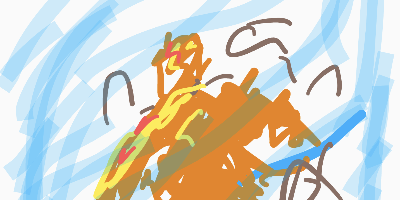jan 1, 90 - Silius Italicus "Punica"
Description:
§ 8.592 and Cremona sent forth her sons in rivalry with Mantua — Mantua, the home of the Muses, raised to the skies by immortal verse, and a match for the lyre of Homer. Men came from Verona too, round which flows the Athesis; from Faventia, skilful to nurture the pine-trees that grow everywhere round her fields; and Vercellae, with Pollentia rich in dusky fleeces; and Bononia of the little Rhine; the ancient seat of Ocnus, which went to war long ago with the Trojans against Laurentum. Then came the men of Ravenna, who paddle slowly with heavy oars over muddy waters, as they cleave the stagnant pools of their marshes. There was also a band of Trojans, coming from the Euganean country in ancient times and driven forth from the sacred soil of Antenor. Aquileia too together with the Veneti was full to overflowing with troops. The active Ligurians, and the Vagenni who dwell scattered among rocks, sent their hardy sons to swell the triumph of Hannibal. All these peoples had Brutus for their leader and relied entirely upon him; and his appeals roused their spirit against a foe they knew already. Though dignified, Brutus was genial; his powerful intellect won men's hearts, and there was nothing forbidding in his virtue. To wear a frowning brow, or win a thankless reputation for severity, was not his way: nor did he court notoriety by a perverse course of life.[ca. 215 BCE] § 12.202 at ease, and turned Hannibal from his purpose as he was rushing upon his doom. He strove to rally and recall his panic-stricken men; "Is this the state in which we come forth from the lap of Capua and her baleful hospitality? Stand fast, miserable men, whose fame, once so high, has become your disgrace. Believe me, if you retreat today, you will find safety nowhere. You deserve that all Italy should fall upon you; and the result of all your fierce fighting is this, that, if you are beaten now, you have lost all hope of peace and of life." His shouting drowned the trumpets, and the noise of his angry rebuke made its way through the tumult to their ears.
Young Pedianus fought bravely there in the armour of Polydamas." He claimed descent from Troy and Antenor as his ancestor; he was a worthy scion of his race, the pride of the sacred river Timavus; and his name was dear to the Euganean land. Father Eridanus, the Venetian clans one and all, and the men who rejoice in the spring of Aponus — these declared that he had no rival, either in battle or when he preferred the peaceful company of the Muses and the obscurity of a studious life, and charmed away trouble with the music of the lyre. No youth was better known to Mars, and none better known to Apollo. He was riding at full gallop on the heels of the retreating enemy, when he recognized the helmet and plume taken from Paulus after death. The wearer was young Cinyps, proud of this great gift from his general. Cinyps was the favourite of Hannibal, and the comeliest of all the host; and no face was radiant with more charm than his, like ivory which remains ever new and bright in the air
Added to timeline:
Date:
jan 1, 90
Now
~ 1937 years ago
